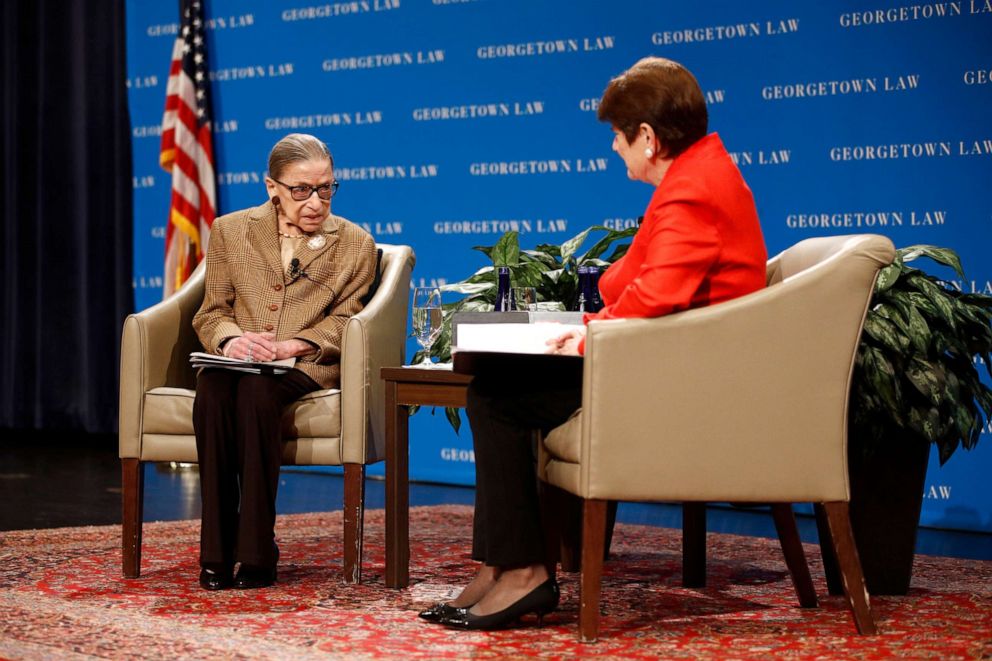Ruth Bader Ginsberg says country should restart Equal Rights Amendment ratification process
The Supreme Court Justice says the 1983 deadline has caused controversy.
Supreme Court Justice Ruth Bader Ginsberg said she thinks the U.S. should start over with its plans to add an Equal Rights Amendment to the U.S. Constitution.
Ginsberg spoke at a special event at Georgetown Law School on Monday night that commemorated the 100th anniversary of the passage of the 19th amendment and said the Constitution should have text that guarantees equal rights for men and women. However, she noted that the current movement to get an ERA ratified despite missing a nearly 40-year deadline is filled with complications and she would want the process to start over.
"I would like to see a new beginning," she said.
Congress approved the resolution for the ERA, which states "Equality of rights under the law shall not be denied or abridged by the United States or by any State on account of sex," back in 1973 and gave the states a seven-year deadline to meet the 38-state minimum to get it adopted. The deadline was extended by three years, however, only 35 states had ratified the amendment by 1983.

Support for the amendment gained ground in the last few years after the 27th amendment, which concerns raises to Congressional pay, was passed more than 200 years after it was approved by Congress. Nevada ratified the ERA in 2017, Illinois ratified it in 2018 and Virginia ratified it in January, despite objections from the U.S. Department of Justice's Office of the Legal Counsel (OLC), which said the amendment can't be ratified due to the 1983 deadline.
Ginsberg noted that five state legislatures voted to rescind their votes to ratify the amendment, and that would post further complications for full ratification.
"So if you count a latecomer on the plus side how can you disregard states that said, 'We’ve changed our minds?'" she said.
The National Archives and Records Administration, which is tasked with formally adopting the amendment, said it would abide by the OLC opinion barring any legal ruling. The attorneys general of Virginia, Nevada and Illinois filed a lawsuit against the national archivist last month, ordering it to recognize the 38-state threshold.
A representative for the Virginia Attorney General's office didn't immediately return messages for comment. Marianne Stack, a spokeswoman for the ERA Coalition, a non-profit advocacy group, said it is determined to see the amendment ratified, with "whatever legal path it takes."
"There are compelling arguments to support recognition of the amendment now that all constitutional requirements have been met," she said in a statement. "The status of the time limit and attempts to rescind ratification are procedural questions that should be resolved in favor of constitutional equality, which is long overdue."
Ginsberg said an equal rights amendment should be implemented in the U.S., and noted that several constitutions around the world, including Afghanistan, have one.
"The union will be more perfect when that simple statement, that men and women are persons of equal citizenship stature, is part of our fundamental instrument of government," she said.




